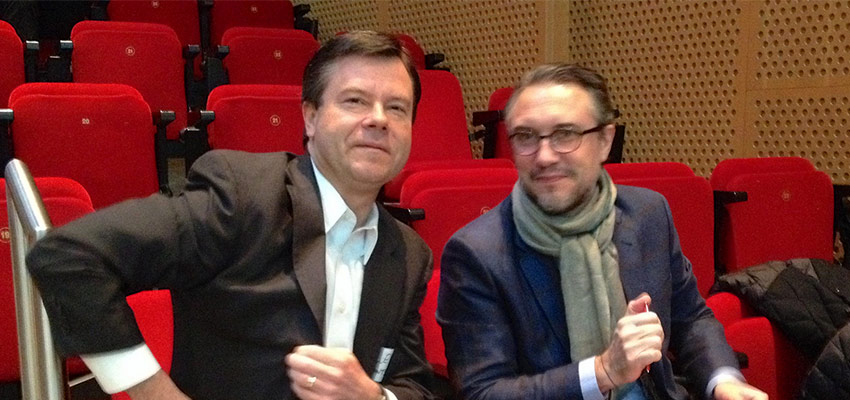
Industry, academia, government, and the nonprofit sector convene to address poverty alleviation at scale.
The day broke cold but clear on February 8th for the second annual MIT Scaling Development Ventures conference - focused on exploring innovative, collaborative, market-driven strategies for poverty alleviation at scale. Given that the inaugural conference was forced to an online forum by a colossal snowstorm in 2013, the convening of hundreds of flesh and blood attendees in MIT’s Stata Center to hear talks by international development luminaries Paul Polak and Nancy Wimmer as well as by guests from industry, government, non-governmental organizations, MIT and other universities, felt like a success from the start.
Bringing together a wealth of perspectives to create lively dialogue
D-Lab founder and co-director Amy Smith opened the conference by welcoming presenters and attendees to MIT “where there is a growing interest among our students, our staff, and our faculty to tackle the challenges of global poverty, through science, technology, innovation and entrepreneurship.” Smith added, “This conference is an outgrowth of that enthusiasm, and represents the types of collaborations that are taking place on our campus and beyond.”
As intended, the conference drew a broad range of presenters and attendees from industry, the academic community, government, non-governmental organizations, as well as from start-up and more mature social ventures. “And this makes it particularly exciting,” commented Amy Smith, “because innovation thrives in the intersections of disciplines, and we have many, many intersections today.”
Alex Counts, president and chief executive officer of the Grameen Foundation, concurred that the diversity of participants contributed to the productivity of the conference. “The most urgent need is for academia, non-profits, social enterprises and global corporations to roll up their sleeves and work on taking existing pro-poor innovations to scale. The MIT Scaling Development Ventures conference was a breath of fresh air in terms of advancing this critical agenda in a practical and stimulating way.”
Paul Polak: Challenging the status quo of international development and corporate social responsibility
The official conference program began with a presentation by Paul Polak, widely regarded as the father of market-based international development. His recent book (coauthored with Mal Warwick), The Business Solution to Poverty, was praised by Bill Clinton as "One of the most hopeful propositions to come along in a long time . . . original, ambitious, and practical."
Polak started off his talk with practical advice including “design for scale from the beginning,” and “incorporate scale into your business plan,” but quickly moved on to more provocative statements such as “corporate social responsibility is cosmetic,” and “charity doesn’t bring people out of poverty.” He challenged the audience was to create bold new companies that can reach 100 million customers who live on $2 per day and which generate $10 billion annually in sales, and encouraged people to view big business as “the prime mover for scale.”
Amit Gandhi, social entrepreneur, D-Lab instructor, and current PhD candidate at MIT in Mechanical Engineering, came away from the conference filled with enthusiasm for the speakers including Paul Polak. Of Polak’s presentation and challenge he commented, “We don't often let ourselves think at that scale, and Paul's approach of having a vision he believes in with a business model that makes sense and having the confidence to work through challenges that may come up spoke to that.”
Netia McCray, an MIT undergraduate and participant in the Scaling Development Ventures Poster Session with her venture, Mbadika, had this to say about Polak’s talk, “Paul Polack's comment in regards to an 'upside-down corporation' resonated with me, because it made me feel that my vision for Mbadika as a bottom-up corporation wasn't as unconventional as I initially thought. . . it was the remark that kept playing in my head throughout the weekend and inspired me to stay the course with Mbadika.”
Nancy Wimmer: The art of rural business
Nancy Wimmer, director of the renewable energy research company microSOLAR, was the second special guest speaker of the conference. She has been involved with the Grameen Bank since 1990 and with the renewable energy company, Grameen Shakti, since it was founded in 1996. Her work with microfinance, village banking and rural entrepreneurs has taken her to Bangladesh, Egypt, El Salvador, India, Honduras, Nepal and Peru. Her recent book, Green Energy for a Billion Poor - How Grameen Shakti Created a Winning Model for Social Business, describes how an entrepreneurial rural energy service company started from scratch and after 17 years became a world leader in off-grid solar energy.
When asked what drew her to the Scaling Development Ventures, Nancy Wimmer responded, “I first met bright MIT engineers earlier when my husband worked with them in artificial intelligence. This gave me firsthand experience on why MIT is considered the world's best engineering university. But the main reason for my decision to come to this conference was my stimulating discussion with Saida [Benhayoune, program director of D-Lab Scale-Ups]. She takes on challenging goals with remarkable energy and keen intelligence. This intrigued me.”
Miguel Chaves, a mechatronic engineer who is working with D-Lab’s USAID-funded International Development Innovation Network to build an innovation center in a favela in Brazil, was impressed by Wimmer's talk. “In my eight years working in this area,” Miguel states, “I don’t remember of a lecture that really showed what happens on the ground.”
Amit Gandhi was also struck by what he heard from Wimmer: “Nancy Wimmer's talk on Grameen Shakti was really inspirational - especially listening to her talk about the way they managed to integrate with communities in order to provide service and support. Just listening to someone who could speak to some of the real challenges we face when we're working in field and sharing her experiences about how they approached them was powerful.”
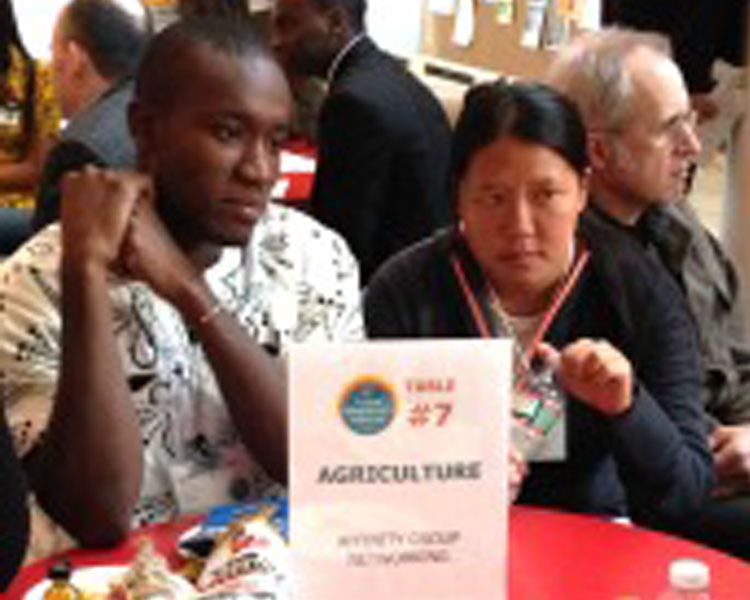
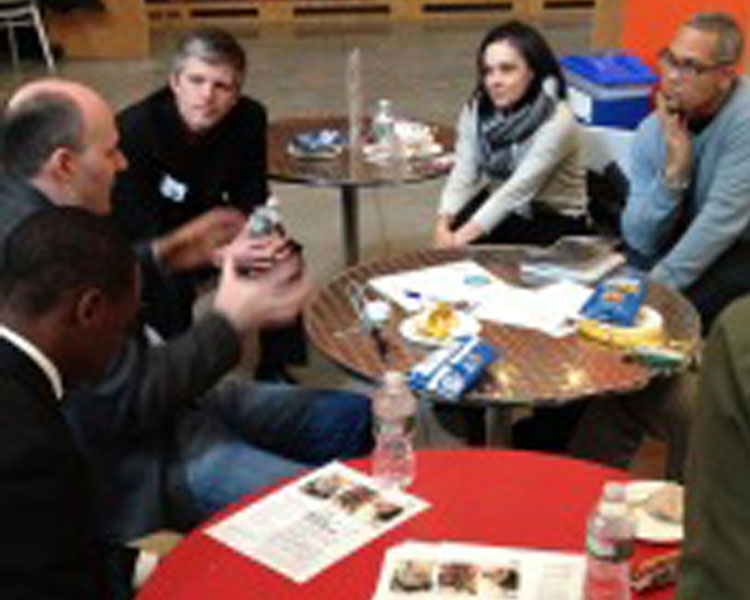
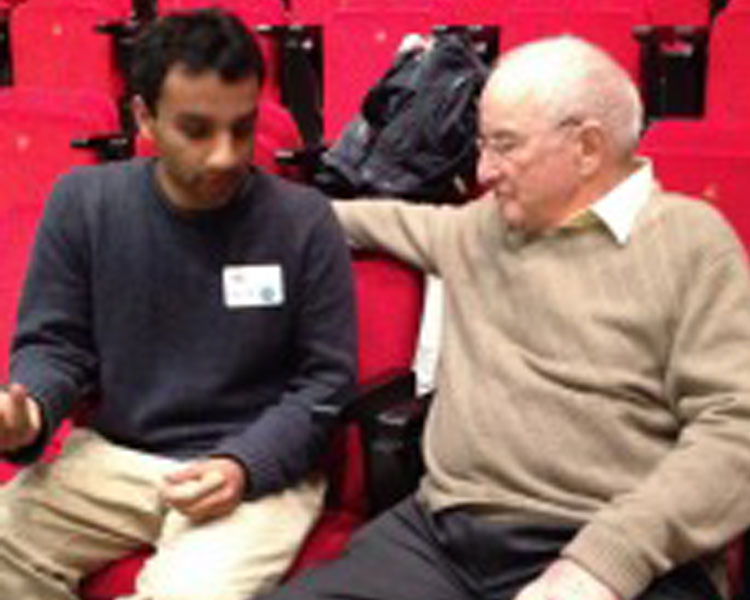
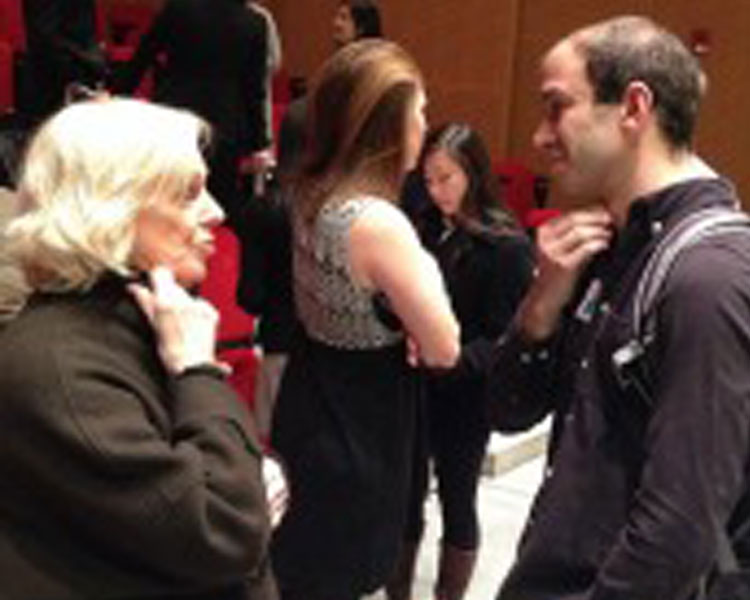
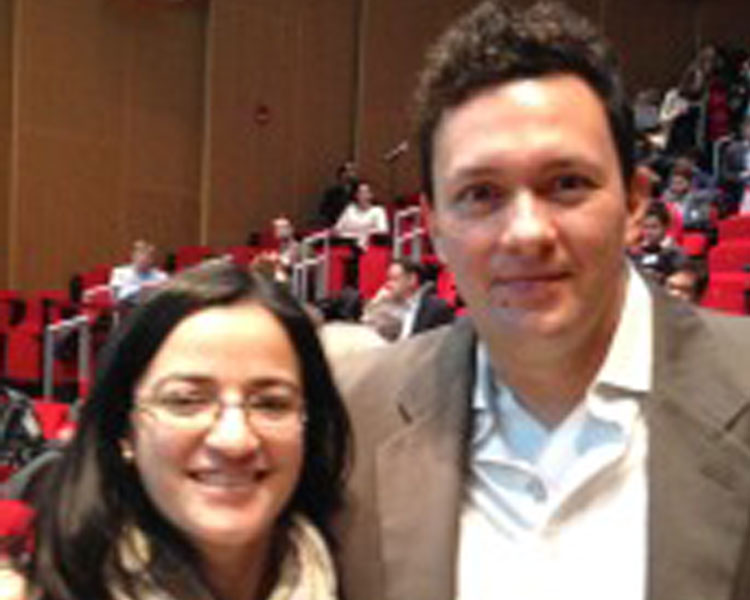
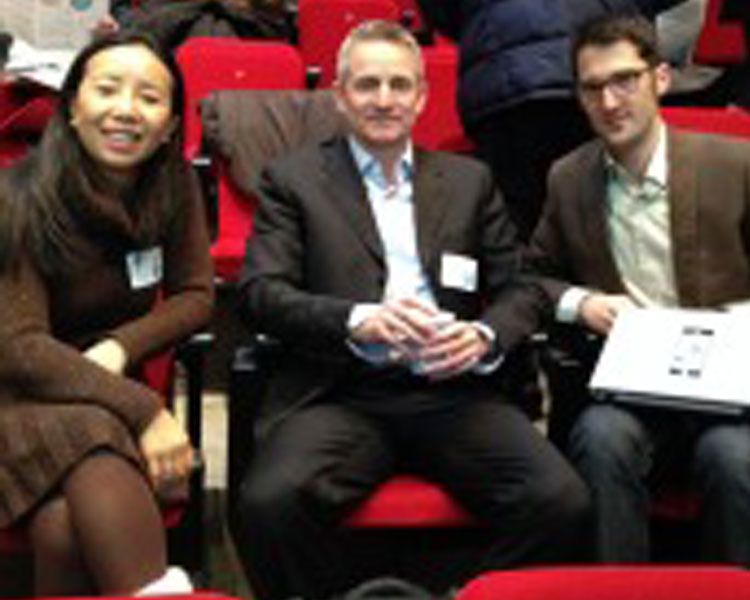
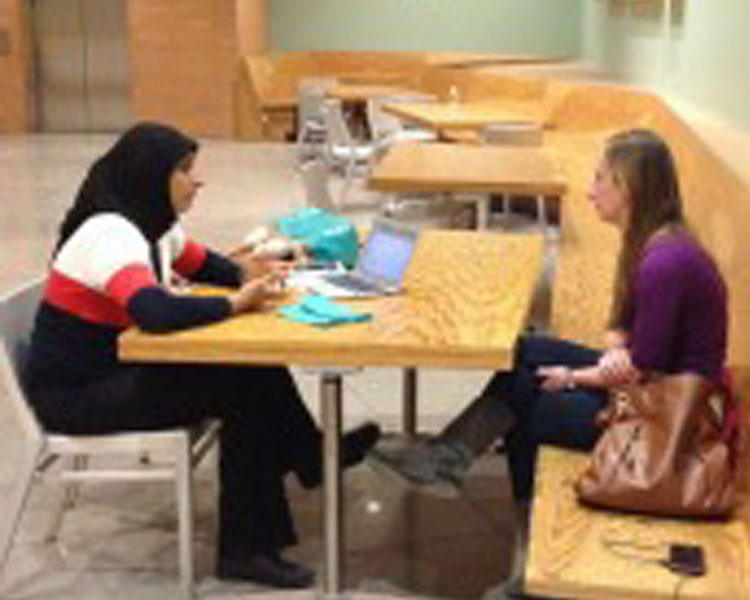
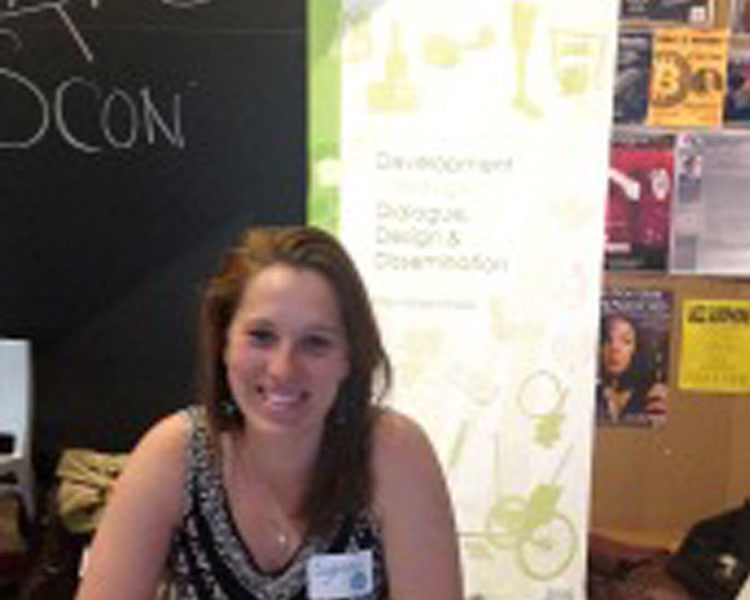
Appropriate solutions for real needs
Moderated by Shawn Powers, who manages J-PAL's Education and Labor Markets programs, the first conference panel session explored how needs assessment and market research inform investment in poverty solutions including products, services, and programs.
The panel brought together speakers from organizations doing exciting work in Base of the Pyramid markets in appropriate, sustainable, and committed ways. Panelists included Clive Allison, Open Innovation Director for Unilever, Senior Enterprise Innovation Manager Shannon Lucas of Vodafone, and Wendy Taylor from the USAID Center for Accelerating Innovation and Impact. Each of the speakers described the work they are engaged in to develop a meaningful understanding of the needs of the populations they serve and what they did to select the appropriate solutions to those needs.
Partnering for scale
Moderated by Kim Wilson, Lecturer in International Business and Human Security at the Tufts Fletcher School, the second panel explored partnership models that create social and economic value for people living in poverty. Panelists discussed the ways in which a social enterprise located in a target market may understand the needs of the population and specific barriers to distribution, an NGO may bring the resources for wide-scale assessment in multiple markets, and a corporation may bring sophisticated supply chain and manufacturing operations.
“I was very pleased that my messages about the importance of distributed human networks in making technology work for the poor, the critical nature of measuring poverty reduction outcomes, and the need to understand the political economy of social change seemed to resonate," noted Alex Counts from the Grameen Foundation, one of the session’s panelists. Counts was joined by Danone's Social Innovation and Ecosystem Director Jean-Christophe Laugée, Radhika Thakkar, Vice President of Global Business Development for Greenlight Planet, and Alban Jacquin of Schneider Electric.
Jacquin, Schneider Electrics' Sustainability Performance and Communities Director expressed enthusiasm for the conference and his participation saying, "I really believe these kind of events are extremely important to keep organizations challenged, open and innovative."
MIT Alumni scaling up Innovation
The final panel session of the day featured MIT alumni currently driving change within industry and NGOs. Stephanie Dalquist, strategic analyst at Air Liquide’s iLab, focused her message for the students and educators in the audience. She began, “It's not just about the 100 million person project . . . but how you get from D-Lab to these projects.” Shayna Harris who completed her MBA at the Sloan School of Management in 2011 is Cocoa Sustainability Manager for Mars. She handles strategy and operations of the Mars Sustainable Cocoa Initiative with a focus on impact and innovation in Cote d’Ivoire and Indonesia. She talked about her interest in understanding and aligning the incentives for farmer adoption of game-changing technologies. A 2012 graduate of the Sloan program, Christina Riechers is now Director of Business Development and Strategy for Evidence Action. Riechers discussed the gap between “what research shows is effective in development and what should actually get implemented at scale.”
While not technically an MIT alum, EyeNetra founder Vitor Pamplona spent time at the MIT Media Lab while pursuing his PhD and joined the panel as well. "It was very invigorating to see the shared stories matching Eyenetra's own experience in the field," commented Pamplona. “From the perspective of a young entrepreneur scaling technology for underserved communities in the developed and developing worlds, the conference was absolutely fantastic . . . I was particularly pleased to see energetic speakers with immense levels of field experience discussing the small details of what made their endeavors successful, especially when it led to long-term community engagements.”
Highlighting the work of MIT students in social entrepreneurship
Sydney Beasley, a senior in the Civil and Environmental Engineering Department at MIT, organized an MIT Student Poster Session for the conference featuring more than a dozen projects and ventures focused on poverty alleviation by teams of undergraduates and graduate students. A $500 prize was awarded to ProtoPrint, a venture started by Sidhant Pai and Katie Spies, both seniors at MIT. ProtoPrint is 3D printing company that empowers urban waste pickers in India and produces the world's first socially beneficial 3D printer filament. Sidhant Pai remarked that he was grateful for the experience at the conference: “It was a great way to get exposure to other interesting projects and interact with the MIT development community.”
Wrapping up, looking ahead to next year
D-Lab Scale-Ups progam director Saida Benhayoune concluded the conference by addressing the attendees saying, “I hope you had the chance to make those personal connections that will advance your work in fighting poverty.” She added, “Next year, prepare to roll your sleeves up and get to work. We have already begun planning for 2015 and intend to offer a menu of smaller breakout sessions focusing on everything from designing for scale, to financing your social venture, last mile distribution, and right-sizing your organization."
The Scaling Development Ventures conference is a joint effort of D-Lab Scale-Ups, the MIT Public Service Center and the MIT Media Lab and funded by the Abdul Latif Jameel Community Initiatives. “Going beyond start-ups stage is crucial for any venture to actually have impact,” commented Joost Bonsen, instructor at the MIT Media Lab of the popular D-Lab-Media Lab Development Ventures Class, “This is why our MIT-wide collaboration around scale-ups is so important and why our conference is organized to learn lessons from practitioners."

